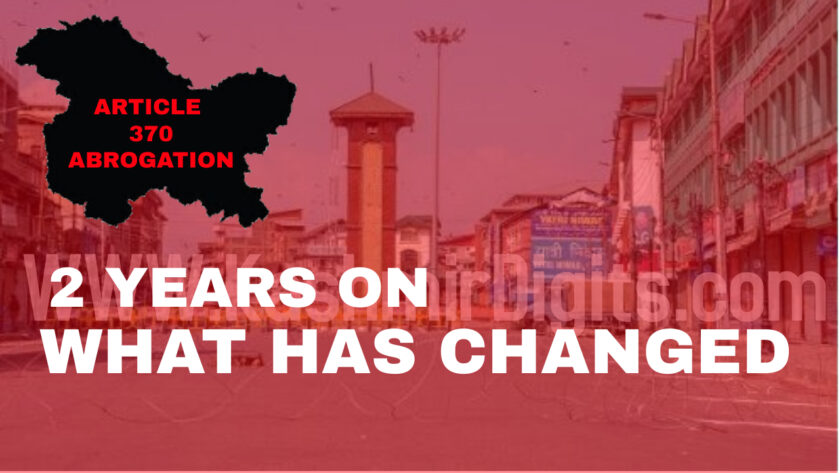August 5, 2019, will forever be remembered as a watershed moment in the turbulent history of Jammu and Kashmir. On the morning on 5th August Union Home Minister Amit Shah took centre stage and announced that Articles 370 and 35(A) which gave J&K special status were nullified.
An uproar in the Lok Sabha followed. Not only this, the state of J&K was divided into Union Territories of Jammu and Kashmir and Ladakh. This decision was historic and controversial as the ruling party fulfilled its long due election mandate. Opposition came through various voices in the erstwhile state as well as India.
Two years have passed since this decision. Here we take a look at what happened in its immediate aftermath and what has changed since then.
Immediate Aftermath
Following this announcement in Lok Sabha, all communication was shut down in the state. Internet services were snapped, cable networks shut down and even telephone lines were cut. A complete shutdown followed. The regime cited this as a precautionary measure so as to stop disturbances due to the decision. It would be another 4 months when mobile communication would resume.
Political leaders detained
The next step was the detention of political leaders from Kashmir. Former Chief ministers Omar Abdullah and Mehbooba Mufti were arrested. Even a senior leader like Farooq Abdullah was house arrested. Many other political leaders of prominent parties such as Sajad Lone and Imran Ansari were also detained.
Now that they have been released, they have begun their attempts to restore J&K to its former status.
2 years on what has changed in J&K?
It has been two years since the abrogation of Article 370 and revoking of J&K’S special status. So what has changed since then? While it can be argued that the day-to-day life of the common has been little affected, there have been some noteworthy changes in the socio-political landscape of this UT.
- Outsiders can now buy land in J&K.
The restriction on buying property in J&K for non locals was a big bone of contention throughout India. In October last year, the Centre paved the way for people from outside Jammu and Kashmir to buy land in the union territory. In a gazette notification, the central government omitted the phrase “permanent resident of the state” from Section 17 of the Jammu and Kashmir Development Act that deals with the disposal of the land in the union territory.
- State subject status for non-local spouses of J&K women.
The non-local spouses of J&K women will now get domicile status. The rules were changed in July this year to allow domicile certificate to be granted to the husbands of local women married to people from outside Jammu and Kashmir. The move will allow them to buy land or property in the Union territory or apply for government jobs.
- Longer stay in J&K grants domicile status.
All people who have resided in the UT for 15 years, or have studied for seven years and appeared in Class 10 or 12 examination in an educational institution in the region, and their children, are eligible for grant of domicile status.
- No passport clearance for stone pelters and anti nationals
In a more recent development, The CID wing of Jammu and Kashmir Police has ordered the denial of security clearance required for passport and other government services to all those involved in stone-pelting or subversive activities.
- Gupkar alliance
When the detained political leaders such as Omar Abdullah, Farooq Abdullah, and Mehbooba Mufti were released, they decided to come together to form a grand party alliance. The Gupkar alliance as it is called consists of 4 more parties in Kashmir. The main objective of the Gupkar alliance is restoration of J&K’s special status.
While these changes will have an impact in the longer term as well, the life of people here remains engulfed in the same issues as before. Their everyday struggles remain the same. Their lives remain affected by the conundrums of livelihood and securing better lives for themselves amidst all this political upheaval.
As they say the more things change, the more they remain the same.
(Poster design by: Faizan Wani, Taarukk Media)
